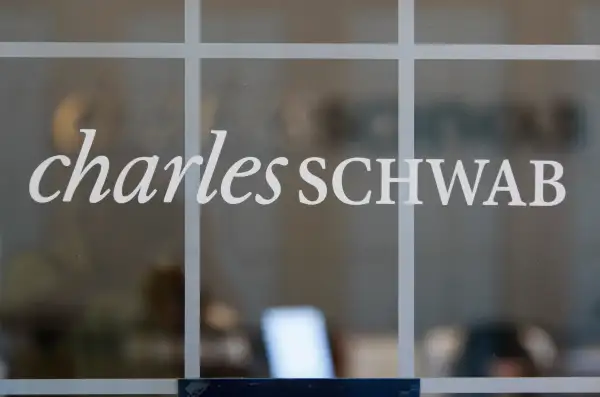What Every Investor Should Know About Schwab's "Free" New Advice Service
Money is not a client of any investment adviser featured on this page. The information provided on this page is for educational purposes only and is not intended as investment advice. Money does not offer advisory services.

A new group of financial websites has been making investment advice cheaper and cheaper. Now the brokerage and mutual funds giant Charles Schwab is getting into the game, with a new online service called Intelligent Portfolios that can design a portfolio for you without charging any fee at all. You'll need only $5,000 to open an account. But, as you might well have guessed, there's an asterisk on that "free" price tag.
We'll get to the asterisk in a moment. First, here's why Schwab's entry into online advice is such a big deal.
Every financial firm in America is fighting to offer investment advice to the middle-class, especially about what to do with their IRAs and rollovers from 401(k) retirement accounts. But the cost of getting a financial pro to sit down and help you design a personalized portfolio of stocks, bonds, and funds is often high—think 1% of assets per year or more—and the minimum required investment can be forbiddingly steep.
New web-based companies like Betterment, Wealthfront, and FutureAdvisor have lately been chipping away at this model. They don't let you talk to a person. Instead, you go to their sites to answer questions about your age, financial position, and how much risk you are willing to take, and computer models generate a portfolio of stock and bond exchange-traded funds (ETFs). These "robo-advisers" often charge investors razor thin fees of 0.2% to 0.5% of assets per year, with low (or no) minimum investments.
The investment advice robo-advisers give isn't terribly complicated. But for most people, that's a good thing. You typically end up in a handful of broadly diversified index funds, which you buy and hold for the long run. This service can be a simple entry point to investing for those who don't know how or where to get started, and they can automate chores like annual rebalancing and adjusting your mix as you age. And, again, they are cheap.
And yet, Schwab's new version appears to undercut even the other robo-advisers' slender fees by charging nothing.
Does that make it a sure winner? Not necessarily. As with all such programs, you have to take a look under the hood.
In addition to whatever investors pay for online financial advice, they also have to pay the fees of the underlying funds. The robo-advisers Schwab will compete with don't offer their own mutual funds, but instead typically rely on Vanguard and iShares products. Those are very cheap funds that usually charge less than 0.2% of assets per year, so the net cost of investing with an online adviser stays low.
Schwab's approach looks a little different. While Schwab is offering its investment strategy gratis, the company has said it plans to recommend some of its own funds, as well as third-party funds.
Schwab hasn't made clear specifically what ETFs it plans to use with Intelligent Portfolios. Schwab spokesman Michael Cianfrocca told Money the investment strategies it uses "have nothing to do with generating revenue for the firm." But a quick glance at the kinds of portfolios it recommends suggests that some of its underlying investment will be relatively costly.
For instance, Schwab appears to make liberal use of "fundamental" index funds. Some investors think this type of index fund, which tends to tilt its weightings toward value-priced stocks, may outperform the market in the long-run. But fundamental index funds are pricier than plain-vanilla stock index funds, which simply hold stocks in proportion to their market value. Schwab's fundamental large-company stock fund charges investors a fee of 0.32% of invested assets annually compared to just 0.04% for the plain-vanilla index funds the company offers. (A 0.32% fee is still low compared to actively managed funds.)
Schwab also stands to earn money from investors' cash positions, since they will be held in Schwab cash vehicles, which Schwab makes money on by collecting a spread between what it earns reinvesting the money and what it pays out to Schwab customers. In one scenario, for an investor in his or her 40s with a moderate risk appetite, the Schwab product recommended putting nearly 9% of the money into cash. The Schwab spokesman said that was typical for other types of accounts housed at Schwab. But it's far more cash than some other investment managers recommend. To take one example: The Vanguard target-date fund designed for a similarly-aged investor would put less than 1% in cash.
In the long run, Schwab's new product may prove a convenient tool for some investors. But don't assume you're getting something for nothing.
